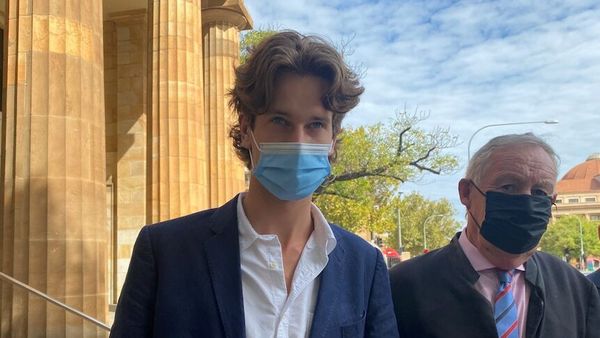A West Australian strawberry farmer is calling for changes to the state's COVID-19 isolation rules after he had to let $200,000 worth of fruit rot, as his entire workforce tested COVID-positive.
With no healthy workers left after more than 40 staff contracted COVID-19 in the same week, Manjimup grower Paul Da Silva said he had no choice but to dump his produce.
He said he was frustrated to see the fruit left to rot while his workforce was stuck in isolation, as many staff were asymptomatic and fit to work on his property.
"They wanted to come to work and they needed the money … but when they had the whole week off, they earned no money," he said.
"We abide by the rules and they all stayed [in isolation] and all the fruit went on the floor."
Mr Da Silva said there was only a small window to harvest strawberries before they perished.
He believed the situation was not just about strawberries, but rather the bigger picture of horticultural production in WA.
"It's everything that is labour intensive — so any type of horticultural crop and any type of manufacturing," he said.
"It's all going to increase in price.
Mr Da Silva said the current isolation rules and restrictions did not create an environment where businesses were confident to invest in the future.
Price pressures rise
Vegetables WA acting chief executive Manus Stockdale said it had been a challenging time for growers, who were already experiencing difficulty accessing labour, as well as the increase in costs of transport, fuel and fertiliser.
"Normalising our management of COVID and how it's treated is something that's a health consideration rather than something for us to be suggesting.
"But there needs to be practical steps around how you continue to work and give growers — and everyone — the confidence to operate and get on with business."
He said authorities would need to be "really cautious" about making any changes that would potentially allow pickers with COVID-19 to work.
"I suppose you could make the case for COVID-positive asymptomatic workers to work but when that's been tried in other states, there's been pushback from the customer — the retailers — about supply from businesses that are doing that," he said.
Mr Stockdale also said it was likely WA growers would consider planting smaller crops next season, to help manage the rising costs of production.
This could mean a tighter supply of WA-grown produce in the near future.
Business assistance on offer
A spokesperson for the state government said it recognised the challenges the Omicron outbreak created for businesses, and had therefore introduced five separate business assistance packages since December.
They said the government was strongly against the prospect of people working while sick with COVID-19.
"The McGowan government has worked closely with the agriculture sector over the past two years to keep people safe and protect thousands of local jobs."
The spokesperson did not provide any indication as to when, or if, restrictions and isolation requirements would be relaxed.










